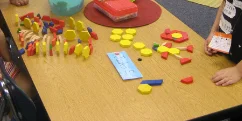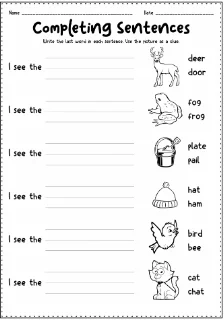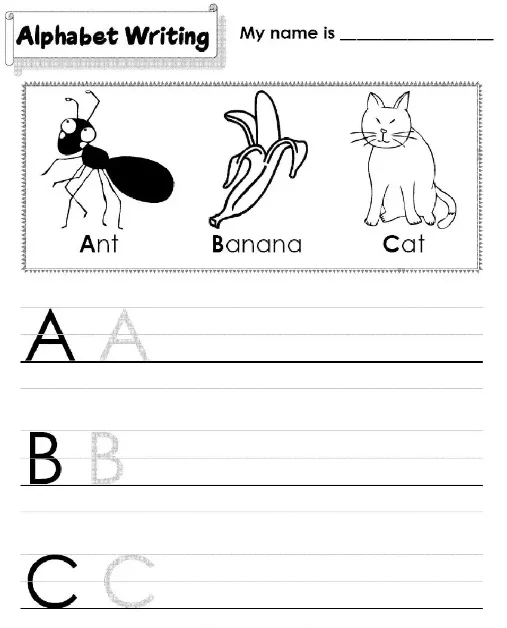The first-grade curriculum is a little different than your average kindergartner’s. While the types of assignments vary depending on age, certain tasks are part of a typical first-grade schedule.
One of these is homework, which all elementary school students, whether in kindergarten or first grade, are expected to complete.
Also Read: Can Professors Change Final Grade? Causes and how to Convince
Do Kindergarteners have Homework?

If you choose to have your child do homework, ensure you know exactly what he or she needs to learn and how long the assignment should take.
If you have questions about what kind of homework your child should be doing, ask his or her teacher before setting boundaries on when and how much homework will be given.
Kindergarteners have homework which are typically given a list of things to do daily, usually a few pages long. The good news is that many of these activities are fun! They’re often based on things kids love to do:
- Playing games and coloring.
- Building with Legos or other construction toys.
- Playing with friends in the classroom or outside in the schoolyard.
The best way to help your child understand homework is by talking about it with them! Ask them if they’re excited about doing their end-of-the-day activities today, and then ask them what they did during recess today.
Then have a conversation about why these activities are important for learning and growing as students.
Should First-Graders be Given Homework?
There are many arguments for and against homework in the classroom. Some argue that having a student’s work thoroughly reviewed by their peers is important, while others believe that it can be a major distraction.

Indeed, they should get homework. However, first, it depends on the age of the child. If his/her peers are in school, expect them to do their homework too. They’re not getting as much homework if they’re not in school.
Second, how much is too much? We don’t think there’s a magical number that tells you when kids should be doing their homework and when they should spend more time playing or watching TV. It depends on the child and what works for him/her.
Third, if you have older kids bored with their current homework assignments, try asking them about what interests them instead of giving them more of the same thing. You might be surprised by their answers (and their potential).
Also Read: How to Deal With Favoritism and Difficult Teachers in School
Importance of Homework to Elementary Students
The importance of homework to elementary students is a subject that is often overlooked by parents and teachers alike. In the past, homework was seen as a chore needed to be completed for students to get good grades.
However, recent studies have shown that students who have been given time to complete their assignments have greater success in school than those who do not. The benefits of homework are numerous:
1) Students who complete their assignments have an easier time understanding the material they are learning in class. This helps them retain what they have learned to apply it to other areas of study later on.
2) Students who do their homework early on can plan out their week or month of work without having to piece together information from various sources or try remembering things from the previous day’s lecture.
3) Students who complete their assignments early on will find the process more enjoyable because they know where they stand with their work and how much more there is left to do before moving on to something else; this allows them time for creative thinking and brainstorming about possible solutions for problems that may arise while completing a paper or project such as writing an essay.
4. It promotes good study habits among students. Homework is important in elementary school because it helps students develop good study habits. It helps them learn to pay attention and think critically, so they can do well on tests and exams. Homework also helps develop a sense of responsibility, which is a key part of being a good student.

5. Homework is important in elementary school because it helps the students to practice their skills. It also allows the teachers to give feedback on what the students need to improve. The teacher may ask the student to do a certain homework task repeatedly until they can complete it correctly.
6. Homework also helps with organization skills because it gives children a chance to organize themselves by putting away toys, clothes, etc., before going into their rooms at night so that they don’t worry about forgetting anything important in the morning when they get up!
Also Read: College Ruled vs Wide Ruled Paper Dimensions
Disadvantages of Homework for Pre-School
There are several disadvantages of homework for preschool. The first disadvantage is that it does not allow the children to play freely. In addition, the parents will have difficulty finding time to go home to help their children with their homework.
Another disadvantage is that it can be very tiring. They have to do their homework in the morning while still tired from sleeping. There is also a disadvantage: it may not be as beneficial as other activities, such as playing and learning new things. For example, they may learn more by playing games than by doing homework.
Another disadvantage of doing homework is that it can cause stress on the child. They may become angry or frustrated because they do not understand what they must do or how much work is involved correctly.
This can lead to poor grades, which could affect their future careers or even how well they perform in school later on when they are older.
Homework can be frustrating and boring. This is because it requires your child to spend time on tasks that don’t interest them (like doing a worksheet). This can become especially frustrating if you have to remind them about assignments or don’t see any benefit in doing the homework.
Lastly, one disadvantage of doing homework is that it requires too much mental energy from the preschooler. This could lead them to have poor concentration ability later on when they are older and need to focus on studies at school or work.

